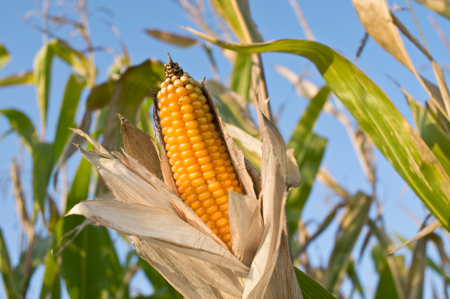 (Agrimoney) – Corn plantings may prove a victim of “challenging” financial conditions facing Russian and Ukrainian farmers, SovEcon said, as farm operator Trigon Agri too cautioned over “serious” financing problems for growers.
(Agrimoney) – Corn plantings may prove a victim of “challenging” financial conditions facing Russian and Ukrainian farmers, SovEcon said, as farm operator Trigon Agri too cautioned over “serious” financing problems for growers.
Farmers in both countries face hardships from raised costs of imported seeds, fertilizers and sprays, thanks to the depreciations in Russia’s rouble and Ukraine’s hryvnia, besides higher financing costs thanks to broad squeezes on funding.
“A farmer who last year might have been looking at an interest rate of 12-15% on a loan is now going to have to pay 25-30% or even more,” Andrey Sizov Jr, the SovEcon managing director, said.
And even though Russia has increased the federal budget for farm loans, a requirement for state authorities also to contribute to subsidies in their region – which looks unlikely in many cases – may limit the boost from this sweetener.
“Things are going to be challenging for farmers in both countries when it comes to spring planting,” Mr Sizov told Agrimoney.com.
‘Die, but sow’
However, the impact looks likely to affect plantings in their make-up more than in overall area.
“Farmers have an expression, ‘die, but sow’,” meaning that they would prefer to plant land with some crop rather than let it go fallow.
“They will plant, but with something cheaper,” favouring the likes of barley, sunflowers or wheat over corn.
“You can sow wheat relatively cheaply. But corn may be worse affected, as it is much more expensive to plant.
“And if you go in for expensive hybrid corn seed, you have to go in for expensive fertilizers and agrichemicals as well to make any sense of that investment.”
‘Serious trouble financing’
The comments come amid something of a debate on the region’s spring sowings prospects, with some operators saying that resilient crop prices, supported by their link to the dollar, are helping farmers offset cost increases.
Farm operator Black Earth Farming said on Friday: “It looks possible that some hard currency denominated input costs may be lower this year,” adding that after a dry autumn allowed expansive cultivation, it was itself “in very good shape with regard to spring and general soil conditions”.
However, Joakim Helenius, chairman of former Soviet Union farm operator Trigon Agri, cautioned over the “strong” impact on agriculture from political, economic and financial setbacks in the region.
“It would appear, based on anecdotal evidence, that a significant part of the agricultural producers are having serious trouble financing their working capital needs given the stressed state of the banking sectors in the two countries,” Mr Helenius said.
“This could mean that the regional harvest in 2015 will be negatively affected, possibly significantly so.”
He added that “everything else being equal, this should be positive for likely price developments in the region, assuming no export restrictions, such as the current Russian ones”, noting too that Trigon Agri itself had secured its working capital needs.
Barley prospects
Corn has been an increasingly popular crop in the former Soviet Union, although in particular for Ukraine, which has grown to the world’s third-ranked exporter, after Brazil and the US.
However, Russian output has grown substantially too, to 11.5m tonnes last year from an average of 3.0m tonnes in the first decade of this century.
The International Grains Council on Thursday cautioned of a dent to regional barley sowings from a “significant increase in input costs and limited access to credit”.
The council pegged Russian barley area, on a harvested basis, at 8.0m hectares, a fall of 13% year on year, with Ukraine area seen falling by 10% to 2.7m tonnes.




